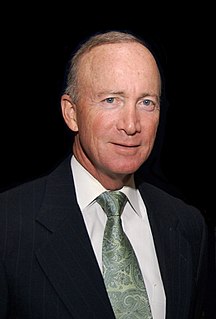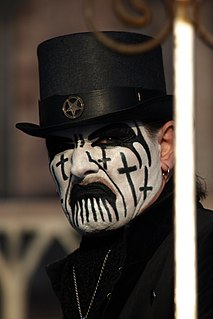A Quote by Mitch Daniels
The perverse presumption that places the burden of proof on the challenger of spending must be inverted, back to the rule that applies elsewhere in life: 'Prove to me why we should.'
Related Quotes
If my interlocutor desires to convince me that Jupiter has inhabitants, and that his description of them is accurate, it is for him to bring forward evidence in support of his contention. The burden of proof evidently lies on him; it is not for me to prove that no such beings exist before my non-belief is justified, but for him to prove that they do exist before my belief can be fairly claimed. Similarly, it is for the affirmer of God's existence to bring evidence in support of his affirmation; the burden of proof lies on him.
The great soul of power extends far beyond states, to every domain of life, from families to international affairs. And throughout, every form of authority and domination bears a severe burden of proof. It is not self-legitimizing. And when it cannot bear the burden, as is commonly the case, it should be dismantled.
But if thought is to become the possession of many, not the privilege of the few, we must have done with fear. It is fear that holds men back - fear lest their cherished beliefs should prove delusions, fear lest the institutions by which they live should prove harmful, fear lest they themselves should prove less worthy of respect than they have supposed themselves to be.
Given our abundance, the burden of proof should always be on keeping, not giving. Why would you not give? We err by beginning with the assumption that we should keep or spend the money God entrusts to us. Giving should be the default choice. Unless there is a compelling reason to spend it or keep it, we should give it.
When I decided to write about my brother and friends, I was attempting to answer the question why. Why did they all die like that? Why so many of them? Why so close together? Why were they all so young? Why, especially, in the kinds of places where we are from? Why would they all die back to back to back to back? I feel like I was writing my way towards an answer in the memoir.
I have a blue 2010 Dodge Challenger SRT, the first car I ever bought. I didn't want it to just be a regular Challenger. I wanted it to be different. So I sent it out to Richard Petty's garage in North Carolina, completely tricked it out - a one-of-a-kind built for me and we changed the name of it from 'Challenger' to 'Champion.'
































